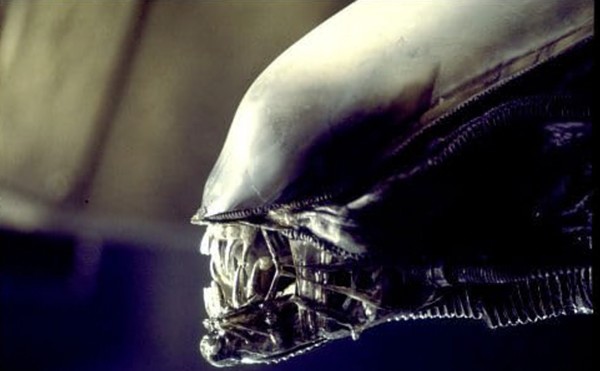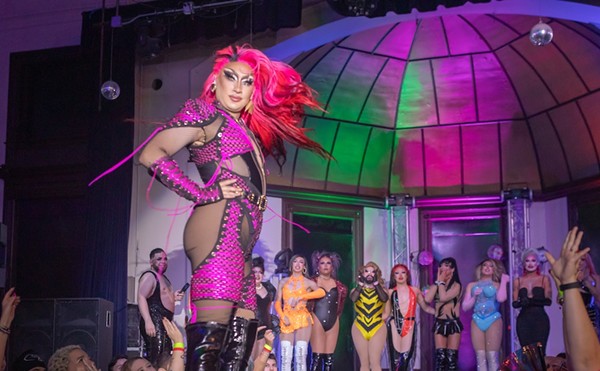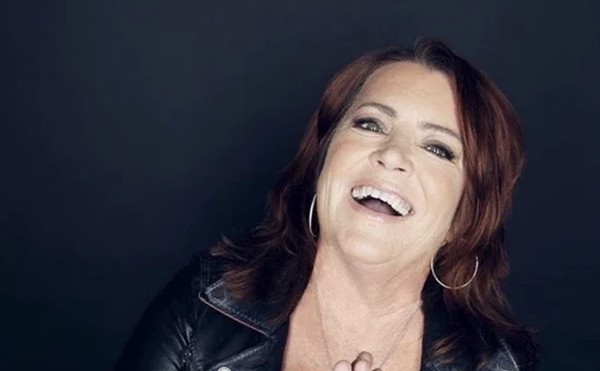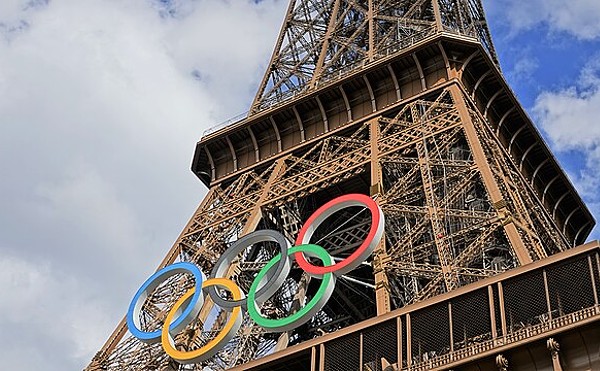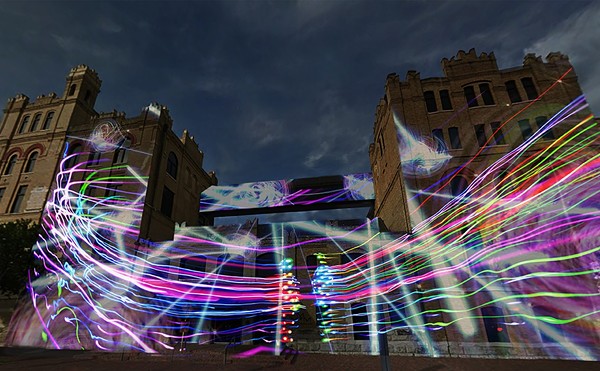Jamie O'Neill's At Swim, Two Boys is a hugely ambitious, 572-page high-literary epic about events in Dublin prior to the Easter 1916 rising — a bloody prelude to the bloodier war for Irish independence from England. It's a marvel of sorts, but makes no concessions to readers unfamiliar with Irish history, geography, or terminology: You're on your own in figuring out who all those factions are, what all those local references mean, plus what to make of all those odd words like "vilipendence" and "reboant." As such, the novel's readership would normally be limited to Those Who Like That Sort of Thing. They exist, but not in great numbers — not in America. I'm certainly not one of them.
Then the main characters are a gay man and two gay boys. Their relationships and concerns are the romantic heart of a story of vast socio-political ferment, leading to revolution. Say what? Books like this are never about gay men. It's as if Dr. Zhivago and Lara had both been guys, and their love was made to carry the same metaphorical significance as love between men and women. Oh, there are big, classic books that have homoerotic elements of greater or lesser import: Achilles and Patroclus, Ishmael and Queequeg, the nude wrestlers in Women in Love. There are not-so big, classic books about unmistakably gay men: A Single Man, Maurice, Giovanni's Room. But Two Boys is pretty much one of a kind.
(A couple of flawed comparisons do come to mind. The first is Pat Barker's trilogy about the British home front in World War I (Regeneration, The Eye in the Door, The Ghost Road), several of whose main characters are gay men, though gay love isn't a main or consistent theme. The second is Tony Kushner's Angels in America, a two-part play about gay men and others in the Reagan era — equally ambitious, but meant to be staged, not read.)
O'Neill's achievement forces readers to think about what fiction there is that's both centrally about gay men and unquestionably first-rate. The answer, in short, is not much. The reason, in short, is that — until the last 50 years or so — nobody would have dared to write it and nobody would have dared to publish it. There have been a lot of first-rate gay writers (maybe not "gay" in the modern sense, but gay enough), and readers can often recognize something that might be called a gay sensibility in the work. But the work's about somebody else, i.e., straight people. And being gay has been such a highly charged thing, so fraught with political and psychological complexities, that even gay writers free to write directly about gay men often don't do it very well, or don't do it at all.
But that's a long and complicated discussion for another day. In the meantime, there's O'Neill. It's British-ruled Ireland, 1915: World War I, and the bodies in the trenches are already piling up. Conor Kostick wrote, "The struggle for Irish independence emerged in the context of a Europe-wide revolt against discredited and spent authorities." One of the book's teenage boys calls himself a Socialist, partially crippled by police putting down a general strike. All the characters — shopkeepers, laborers, schoolboys, priests, soldiers, organizers, landed gentry — are caught in the crosscurrents of multiple factions longing, working, fighting for some version of a "free Ireland." But that hasn't yet been defined into a mere government, a mere shuffling of titles and power relations; it's still a vision, a powerful idea of something beyond the spent authorities of the present.
And O'Neill dares to put gay liberation right in the middle of this, inseparable from it: two teenagers and the disgraced young scion of an eminent family, swimming together in Dublin Bay, in various combinations, the swimming somehow connected to making love — getting out into raw elements, away from the constrictions of the shore. The novel imagines an incipient gay consciousness; the trials of Oscar Wilde, another Irishman, are fresh in the mind, and the characters are getting the first glimmers that love between men may not be the dark, ugly thing it's assumed to be — it can be a passionate force for good.
Well, it's a romantic book. Extravagantly romantic, when you come down to it. But not mush: a story of extravagant times, and — as they refer to themselves — "extraordinary people." Yeah, it's hard to read. It takes some extra work, extra attention. Even if you don't like that sort of thing, the rewards are great.
At Swim, Two Boys
By Jamie O'Neill
Scribner
$28.00, 572 pages
ISBN: 0743222946

KEEP SA CURRENT!
Since 1986, the SA Current has served as the free, independent voice of San Antonio, and we want to keep it that way.
Becoming an SA Current Supporter for as little as $5 a month allows us to continue offering readers access to our coverage of local news, food, nightlife, events, and culture with no paywalls.
Scroll to read more Arts Stories & Interviews articles
Newsletters
Join SA Current Newsletters
Subscribe now to get the latest news delivered right to your inbox.




